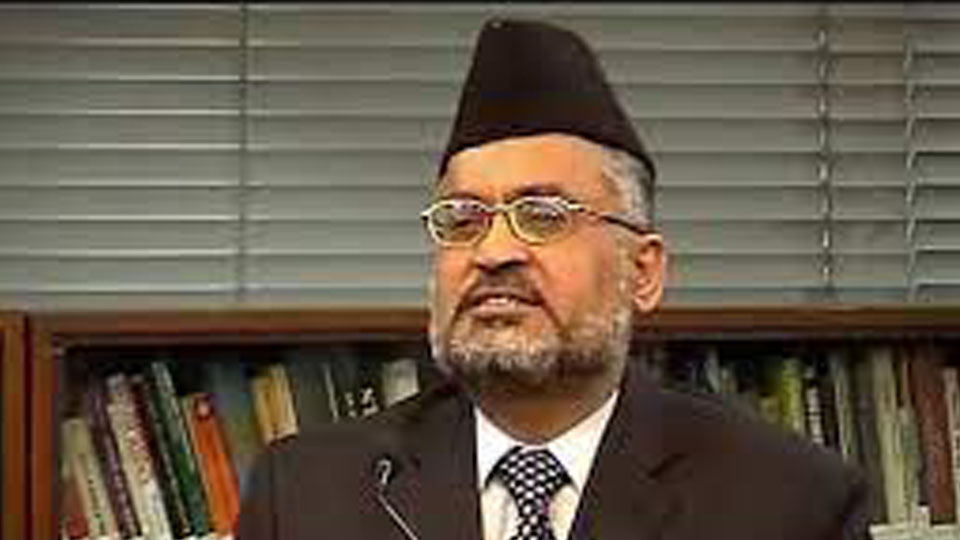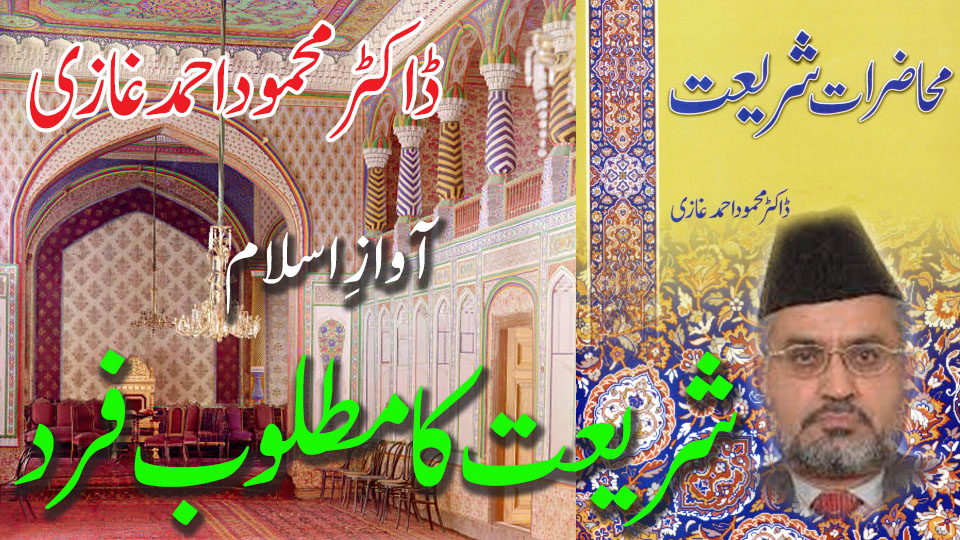The Balance of Faith begins with a fundamental question: “How does Islam truly want us to live?” This profound question invites reflection on whether we should shape our faith according to our understanding or align ourselves with the guidelines set by Shariah. The dual nature of positive and negative sentiments surrounding this question reflects the struggles and hopes of every believer trying to navigate their spiritual and worldly responsibilities. Dr. Mahmood Ahmed Ghazi, an eminent scholar, delved into this intricate topic in one of his enlightening lectures, later compiled in the book Muhazirat-e-Shari’ah.
A Universal Framework for Humanity
The Balance of Faith: Islam stands apart from man-made systems of governance that cater to specific societies or nations. The Balance of Faith It provides a universal framework encompassing every facet of life. Unlike human-crafted laws, which are often influenced by temporal and cultural needs, Islam’s teachings are timeless and globally applicable. The Balance of FaithDr. Ghazi emphasized this in his discussions, illustrating how Islam guides its followers toward a balanced life that fosters both individual growth and collective harmony.
Striking the Right Balance
One of Islam’s unique features is its emphasis on balance—not just in individual lives but also in societal structures.The Balance of Faith Dr. Ghazi elaborated on how Islam discourages extremes. A Muslim’s life must not lean excessively toward personal freedoms at the expense of societal well-being or vice versa. This dual focus ensures:
Individual Growth: A person’s spiritual and moral development is nurtured without isolating them from the needs of their community.
Collective Welfare: Social systems are built to uphold justice, equity, and compassion without suppressing individual rights.

Lessons from Other Systems
Dr. Ghazi’s analysis also highlighted the flaws in purely man-made systems:
Socialism: Prioritizes collective welfare but often suppresses individual freedoms and ownership.
Capitalism: Encourages individual enterprise but frequently leads to economic disparities, concentrating wealth in the hands of a few.
Islam, however, offers a balanced approach, integrating the strengths of both systems while avoiding their pitfalls. This equilibrium is crucial for creating a society where individual aspirations and collective goals coexist harmoniously.
Practical Applications of Shariah
Dr. Ghazi’s lectures often centered on the practical aspects of implementing Islamic teachings. He illustrated how Shariah addresses real-world challenges with clarity and wisdom. For instance:
Economic Justice: By promoting Zakat and prohibiting usury, Islam ensures a fair distribution of wealth.
Social Ethics: Through guidelines on family, community, and governance, it fosters mutual respect and accountability.
Personal Conduct: Islamic teachings encourage humility, honesty, and compassion, ensuring that personal virtues translate into societal benefits.
The Role of Scholarship
Dr. Ghazi’s work underscores the importance of seeking guidance from learned scholars rather than relying solely on individual interpretations. As the former president of the International Islamic University, he advocated for a deep understanding of both religious and worldly affairs. His lectures, including those delivered in Doha and Islamabad, exemplify how scholarly insights can bridge the gap between Islamic ideals and contemporary realities.
The Relevance of Islam Today
In a world grappling with inequality, environmental crises, and moral decline, Islam’s balanced approach offers solutions that transcend boundaries. Its emphasis on justice, moderation, and accountability ensures peace and prosperity for all, irrespective of faith or nationality. Dr. Ghazi’s insights remind us that adhering to Shariah is not just a spiritual duty but also a practical means to improve our lives and societies.
Conclusion
The question, “How does Islam truly want us to live?” carries both positive and negative sentiments, reflecting the challenges and opportunities of aligning personal beliefs with divine guidance. By following the balanced framework of Islam, as elaborated by scholars like Dr. Mahmood Ahmed Ghazi, we can achieve personal growth and contribute to a just and harmonious society. This comprehensive vision of Islam is not just for Muslims but serves as a beacon of hope for all humanity.
If you’re interested in reading this book, click the link below for a free download.
https://drive.google.com/file/d/1xwM4jW3kX_QXIBfNLqGUvpIzKSNJXxHB/view?usp=sharing
If you’d like to listen to this book in audio format, click the CONTACT button below to get in touch with the AwazeUrdu team to order the audiobook.
Contact us:Click the link below to watch the video on Facebook as well.
https://www.facebook.com/share/v/14gcU2wc9b
Click the link below to watch the video on Febspot as
well.https://www.febspot.com/video/2564680
Click the link below to watch the video on Rumble as
well.https://rumble.com/v5wns0h-how-does-islam-want-to-see-man.html
اسلام دراصل انسان کوکیسادیکھناچاہتاہے؟۔ کیاہم اپنی سمجھ کےمطابق اپنےآپ کومسلمان بناناچاہئے یاشریعت سےپوچھناضروری ہےکہ وہ ہمیں کیسامسلمان دیکھناچاہتی ہے؟۔ بطورِانسان، ممالک نےاپنی ضرورت کےمطابق قوانین بنائے ہیں، تاکہ معاشرےکو صحیح طریق پرگامزن رکھ سکیں مگر اسلام چوں کہ عالمگیرمذہب ہے، اورزندگی گزارنےکے ہرپہلو کواس نےواضح کیاہے،
اس اصول کےتحت وہ ہمیں بتاتاہے کہ درحقیقت مسلمان کوکیساہوناچاہئے۔ یہی ڈاکٹرمحموداحمدغازی کے اس خطبےکاموضوع ہے، جس کاکچھ حصہ آوازِاسلام کی اس ویڈیومیں پیش کیاجارہاہے۔ یہ خطبہ مرحوم کےدیگرگیارہ خطبات کےساتھ “محاضراتِ شریعت” نامی کتاب میں موجودہے۔ اسلام آباد اوردوحہ/قطر کی مختلف مجالس میں مختلف عنوانات کےتحت یہ خطبات پڑھے گئے۔ ڈاکٹرصاحب بین الاقاومی اسلامی یونیورسٹی کےصدرتھے۔ دین ودنیا کے معاملات پران کی گہری نگاہ تھی۔
ان خطبات کےذریعے انہوں نے مختلف دینی ودنیوی مسائل کاحل شریعت کی روشنی میں بتایاہے۔ دینِ اسلام فرد کی انفرادی واجتماعی ترتبیت اورتزکیہ پریکساں توجہ دیتاہے۔ یعنی انفرادی زندگی کواتنی اہمیت نہ دی جائے کہ فرد آزادی کا خوگر ہوکر معاشرتی مفاد کونظرانداز کرناشروع کردے اور نہ ایسا ہو کہ اجتماعی زندگی کومؤثر بنانےکی کوشش میں فرد کی شخصی آزادی متاثرہوجائے۔ غور کریں تو یہ دونوں مثالیں دنیاکےنظاموں میں ملتی ہیں۔ مثلاً سوشلزم اجتماعی ترقی کواہمیت دیتاہے، اس میں فرد کی ملکیت کاتصور دب جاتاہے۔ جب کہ سرمایہ دارانہ نظام میں ارتکازِدولت چند ہاتھوں تک محدود رہ جاتاہے۔
اسلام نے جومتوازن اورمعتدل نظام اپنےماننےوالوں کودیاہے، اس میں نہ صرف مسلمانوں کےلئے صلاح وفلاح ہے، بلکہ اگر اسے اس کی تعلیمات کےمطابق اجتماعی وانفرادی، عوامی وحکومتی ، معاشی ومعاشرتی غرض ہر سطح پر نافذ کیاجائے تو یہ ساری انسانیت کےلئے امن وسلامتی، باہمی حقوق کی حفاظت اورشخصی آزادی کاضامن ہے

